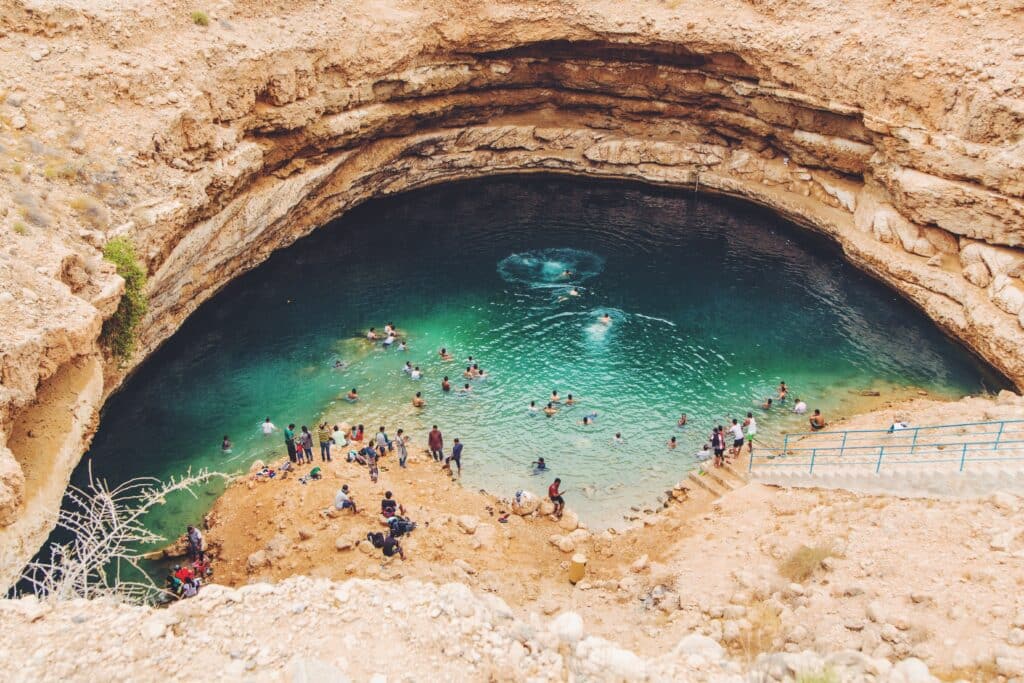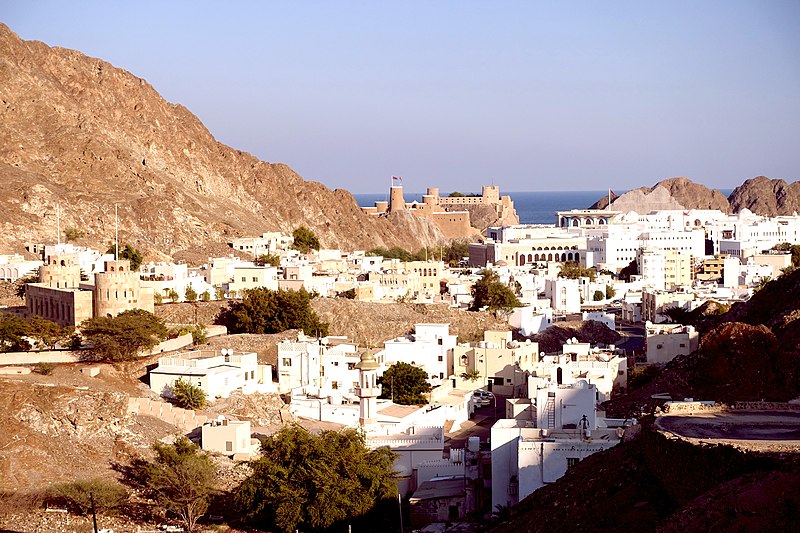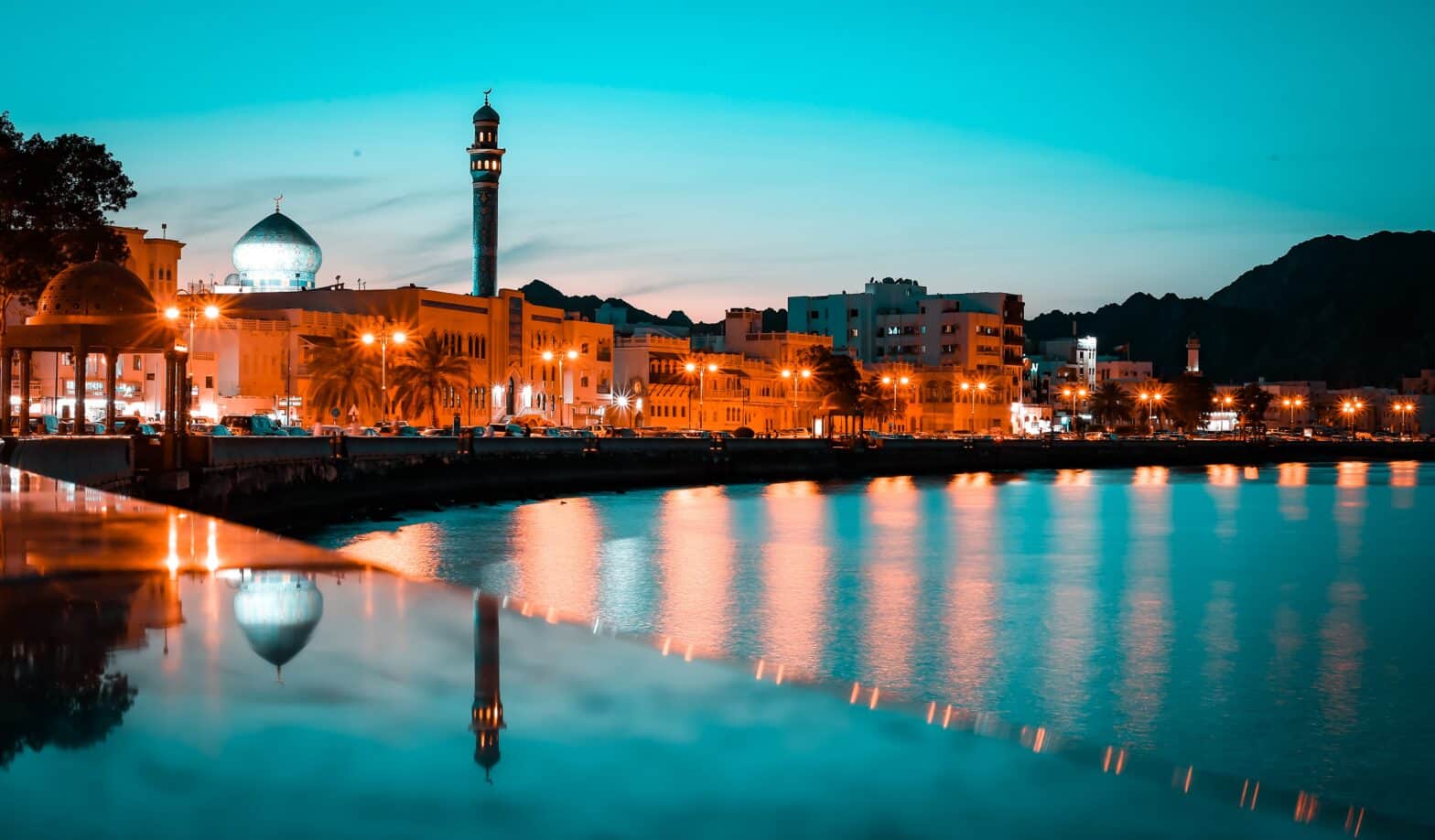In the southern Arabian Peninsula, halfway between Asia and the Middle East, lies a sultanate of 4.5 million inhabitants; singularly prosperous and different from its neighbours in the Persian Gulf. A former imperial power, Oman is now attracting a growing population of expatriate workers. Known as the ‘Switzerland of the Gulf’, Oman has a lot to offer to expats: a unique blend of authenticity and modernity, spectacular landscapes comprising dunes, mountains and seascapes, numerous professional opportunities, a high standard of living and an advantageous tax system.
If you, too, are ready to make Oman your new home, alone, as a couple or with your family, this guide is for you!

Which visa do you need?
If you are not a resident or national of a Gulf Cooperation Council (GCC) country, before moving to Oman, it is important to check with the Omani embassy in your current country of residence regarding entry and expatriate requirements. There are several visas to suit your profile, including work visas (which must be sponsored by your employer), family visas and investor visas. To find out which type of visa you need, click here. For information on the visa application process, you can also write to info-omaneVisa@rop.gov.om.
Working in Oman
Work is the main reason for relocation to Oman, which has seen a significant increase in the number of foreign workers in recent years. Omani and international companies are looking for skilled workers, particularly in the construction, energy (oil and gas), trading, automotive repair, tourism, education, import-export and health sectors.
One of the requirements for a work visa is to find a job before moving to the country, for example, by using an international recruitment agency, contacting the companies you are interested in directly to obtain an offer or by using local expatriate networks. It is the responsibility of your employer to support your visa application and, if you wish to change jobs once you live in the country, you will need to obtain their permission (letter of no objection) to do so. If your employer refuses, you can leave the country to apply for a new sponsorship and a new visa.
If you are not a GCC national, to set up your own business, you must have at least US$150,000 in investment capital, obtain a permit from the Ministry of Commerce and Industry, and find an Omani partner to own 51% of the company. It should be noted that the government has created several free trade zones to diversify the country’s economy and encourage import-export trade.
N.B: The presence of a community of international workers from the four corners of the world is not new to Oman. There is a great deal of cultural diversity in the workplace, which helps to create a very special corporate culture, unique to the country. In Oman, cultures mix easily and networking plays a very important role. In the city, and particularly in the capital. Muscat, Arabic and English are the main working languages.
Accommodation
If you are moving to Oman for work, it is quite possible that your employer will offer you a ‘relocation package’ and take care of renting your accommodation which either they find or you will be required to find. If you are on your own, once you’ve arrived you can search the classifieds, get in touch with expat networks in the country or use an estate agency. It is best to start looking locally so that you can visit the property in person.
Leases are usually for a year, and it is not uncommon to be asked to pay six months or even a year’s rent in advance. If you are only planning to stay for a few months, make sure you do not sign a year’s lease and negotiate an agreed timeline with the landlord. Water and electricity charges are not included in the rent. Although rents are generally lower than in the United Arab Emirates, they can be high in cities like Muscat, Salalah and Sohar, particularly in wealthier areas.
As an expat, you also have the option of buying a property in the country.

Opening a bank account
There are both local and international banks in Oman. The first step is to check with your current bank if they have branches in the Sultanate. If not, you can compare the services offered by local banks, such as Bank Muscat and the Central Bank of Oman, or international banks based in Oman, such as HSBC. As a matter of convenience, you can also choose the same bank as your employer.
Note that only residents have the right to open a bank account in the country.
Tax benefits
Since 2020, Oman is no longer considered a tax haven by the European Union. The country’s tax system, however, continues to remain attractive to expatriates. The personal income tax rate is zero, while corporate tax is 15%.
Healthcare
Over the past 50 years, Oman’s healthcare system has undergone a veritable renaissance: medical services are varied, of high quality and provided by highly qualified professionals in very modern health facilities. Medical costs can escalate quickly in the fast-growing private healthcare sector and it is strongly recommended that you take out international health insurance to benefit from flexible and effective cover.
A few facts about Oman:
- Oman is a welcoming country, people are very open to expatriates from all over the world, but deeply rooted in tradition. Islam plays a very important role in the country and it is important to respect its customs and traditions.
- Traditional Omani cuisine is a blend of Gulf and Asian cuisine where spices play a central role. Large cities like Muscat are home to a wide variety of restaurants.
- The currency of Oman is the Omani rial (OMR) (1 OMR = €2.41).
- The cost of living in Oman is relatively high, although it does not reach the same levels as in the United Arab Emirates. Education, housing, health and leisure are all major expenses.
- Literal Arabic is the official language; the Omani dialect is spoken by Arabic-speaking Omanis. English is taught fairly early in Omani schools and is used in the workplace.
- If you’re traveling with your family, there are some excellent (but expensive) international schools in the sultanate, particularly in Muscat. You can expect to pay up to €12,000 a year for the Lycée Français de Muscat and up to €2,2556 for the ABA Oman International School.
Top activities in Oman:
- Soak up the spirit of the city of Muscat, its authentic souk, and three forts; explore 5,000 years of the country’s history at the Oman Museum.
- Dive into the creeks at Bandar Kheiran
- Take a refreshing break at the edge of the wadis and the palm grove in the village of Bikt Al Mawz
- Hike through the heart of Oman’s Grand Canyon in the gorges of Wadi Ghul and Jabal Mosht
- Walk in the footsteps of explorers and camel herders in the Rub Al-Khali desert
- Visit Sour, an ancient trading port once at the heart of the incense and spice trade
- Climb aboard an Omani dhow to explore the Musandam Peninsula
